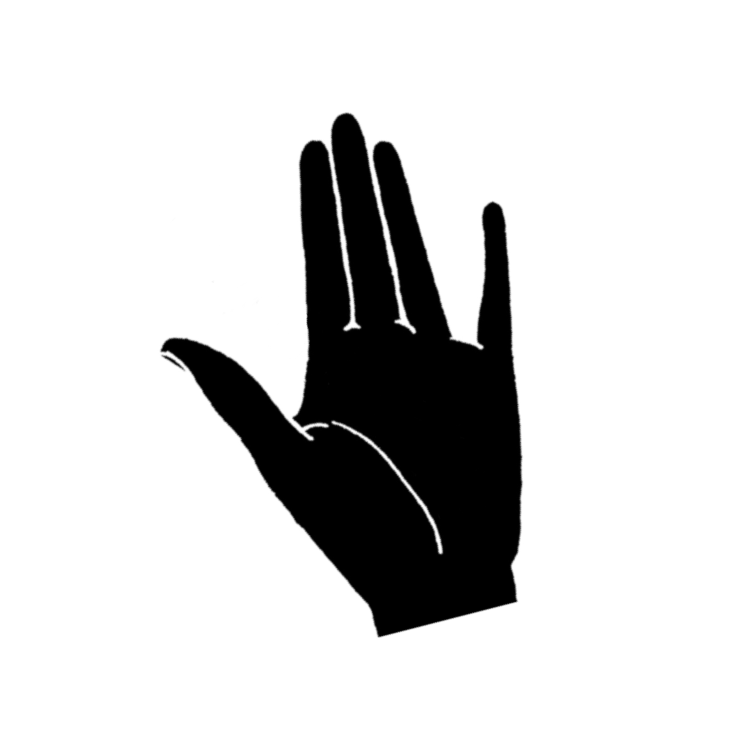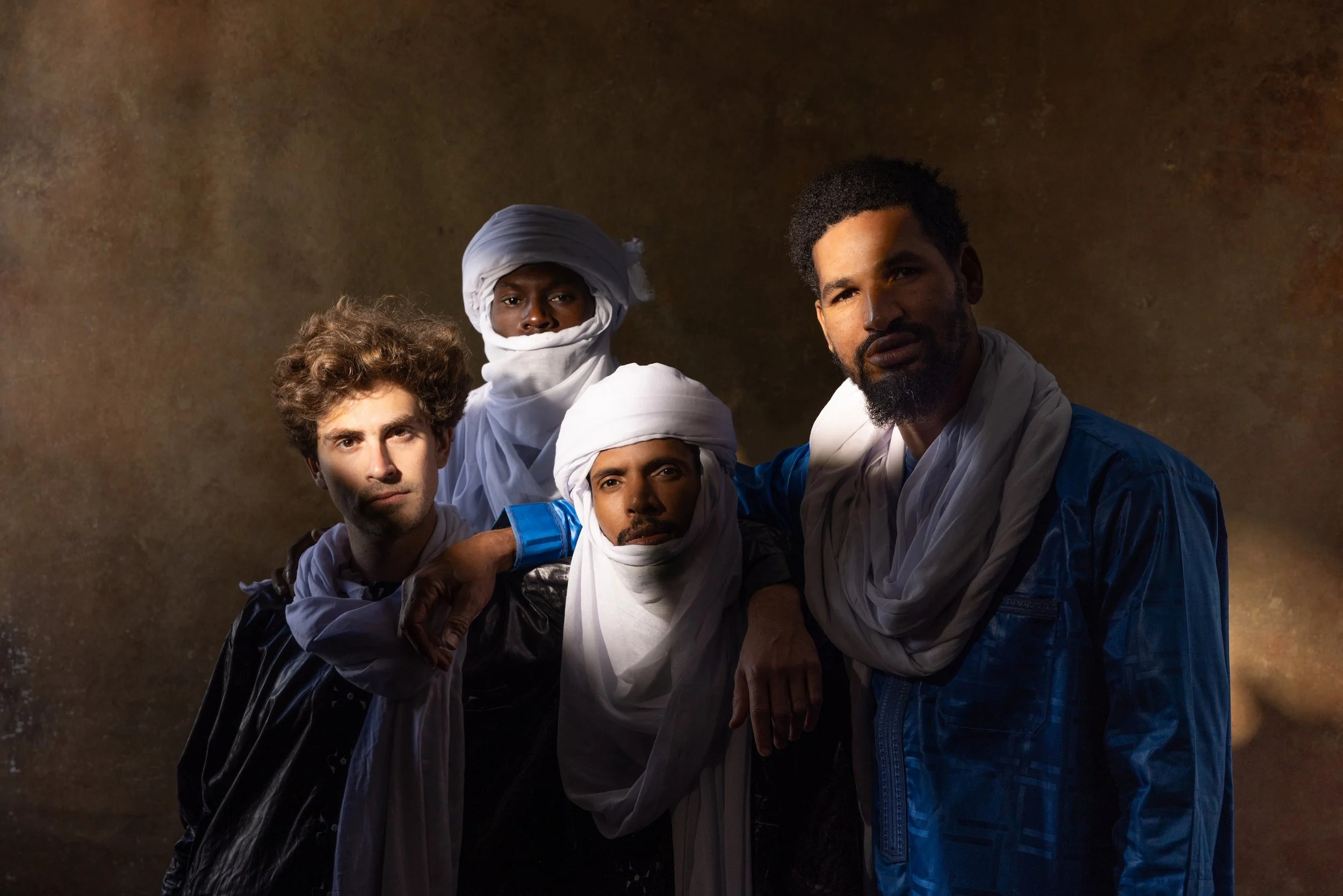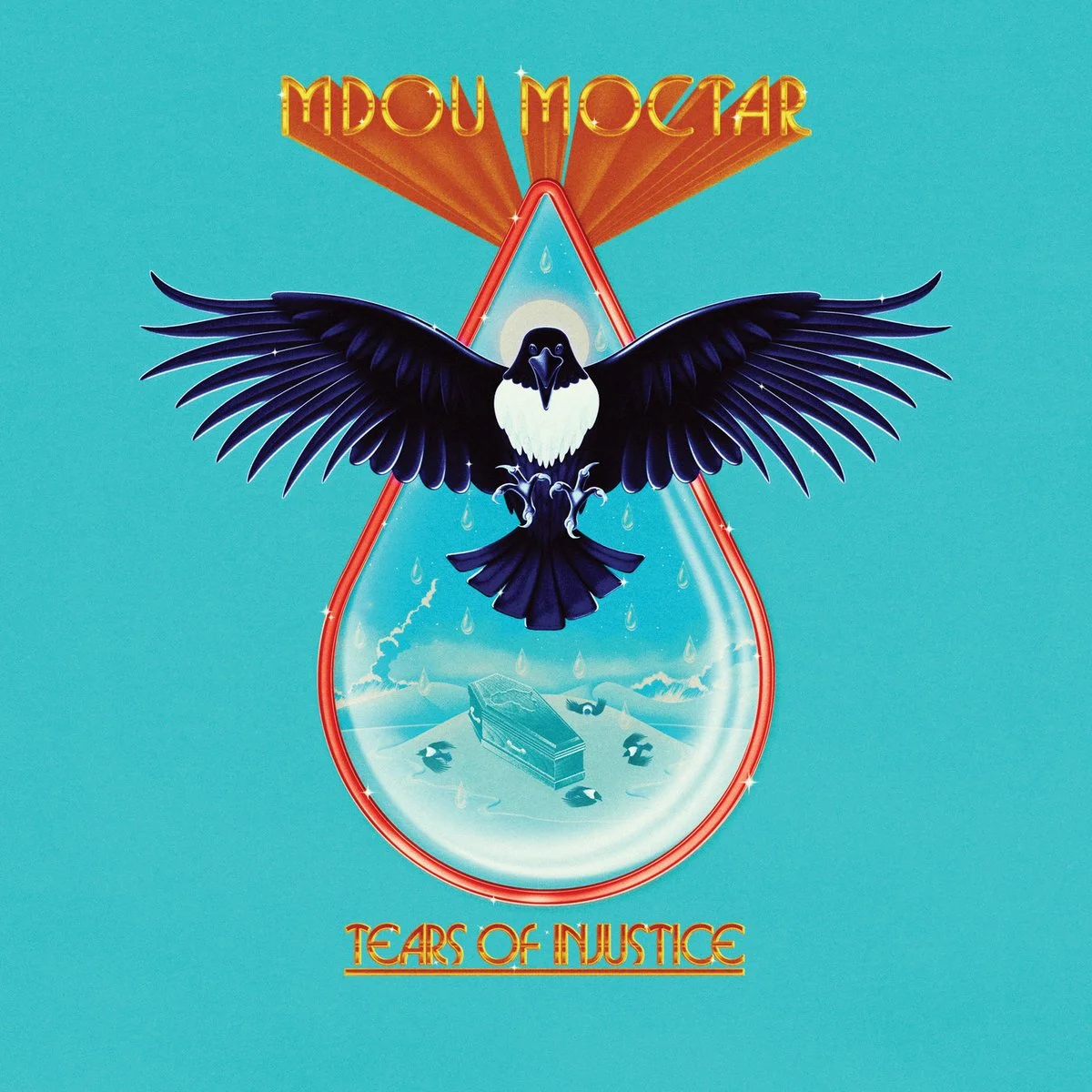TICKETS ON SALE WEDNESDAY DECEMBER 11 AT 10:00 AM
Mdou Moctar immediately stands out as one of the most innovative artists in contemporary Saharan music. His unconventional interpretations of Tuareg guitar and have pushed him to the forefront of a crowded scene. Mdou shreds with a relentless and frenetic energy that puts his contemporaries to shame.
Celebrating the release of Tears Of Injustice, a completely re-recorded and rearranged version of the acclaimed 2024 album Funeral for Justice for acoustic and traditional instruments, Mdou Moctar brings a stripped down set to the Bronson Centre on Monday, February 3 for a special and intimate performance.
with special guests
Siaka Diabaté & Raphael Weinroth-Browne
Instagram (Siaka Diabaté) / Raphaelweinrothbrowne.com
If Funeral for Justice was the sound of outrage, Tears of Injustice is the sound of grief.
Mdou Moctar’s new album is Funeral for Justice completely re-recorded and rearranged for acoustic and traditional instruments. It is an evolution of the band’s critically-adored breakout – the meditative mirror-image to the blistering original.
In July of 2023, Mdou Moctar was on tour in the United States when the president of Niger, Mohamed Bazoum, was deposed by a military junta who made him prisoner at the presidential residence. They ordered the nation’s borders closed, leaving band members Mdou Moctar, Ahmoudou Madassane, and Souleymane Ibrahim unable to return home to their families. Plans to record a companion to Funeral for Justice – then still many months from release – had been in the works already, but the idea now took on new urgency and gravity. Two days after the tour wrapped in New York City, the quartet began tracking Tears of Injustice at Brooklyn’s Bunker Studio with engineer Seth Manchester.
“We wanted to make a separate version of Funeral for people to hear,” explains the band’s US-based bassist and producer, Mikey Coltun. “We’re always playing around with arrangements at shows. We wanted to prove that we could do it on a record, too. And there’s a whole other side of the band that comes out when we play a stripped down set. It becomes something new.”
They chose to track Tears sitting together in one room, keeping the session loose, stripped down, and spontaneous. “We didn’t really work on the arrangements prior to going in,” recalls Coltun. “We’d just play, find the feel, and do the song.” Things came together quickly, with principal recording wrapped in only two days. The hypnotic 8-minute take of ‘Imouhar’ is actually two distinct passes through the song performed in quick succession – Moctar didn’t stop playing long enough to split the takes apart. After a month, the band was able to return home to Niger and, when they did, Coltun gave Madassane a Zoom recorder to take along. The rhythm guitarist used it to record a group of Tuaregs performing call-and-response vocals, which were later added into the final mix.
On Funeral for Justice, anger at the plight of Niger and the Tuareg people is plainly expressed in the music’s volume and velocity.
On Tears, the songs retain that weight sans amplification. They are steeped in sadness, conveying the grief of a nation locked into a constant churn of poverty, colonial exploitation, and political upheaval. It is Tuareg protest music in raw and essential form. “When Mdou writes the lyrics, he typically writes them with an acoustic guitar. So you’re getting closer to that original moment,” says Coltun. “It retains heaviness, but it’s haunting.”
Raphael Weinroth-Browne and Siaka Diabaté. Photo by Curtis Perry
Siaka Diabaté
Né dans une famille de griots à Orodara, Siaka Diabaté a commencé son parcours musical en jouant du balafon sous la direction de son père. En 2008, il a déménagé à Ouagadougou et a travaillé au Village Artisanal, où il a découvert de nouveaux genres musicaux et instruments. La kora est devenue sa compagne de vie. Ses premières collaborations artistiques ont débuté en 2011 et l'ont amené sur les scènes du Burkina Faso et d'ailleurs.
Depuis 2022, résidant à Ottawa, au Canada, Siaka continue d'enrichir la scène musicale locale de son talent éclectique, en combinant les traditions africaines avec de nouvelles expériences musicales, créant ainsi une harmonie unique et captivante.
Raphael Weinroth-Browne
Internationally renowned Canadian cellist and composer Raphael Weinroth-Browne has been celebrated for his emotive and virtuosic playing both on stage and in the studio.
Raphael has played on Juno award-winning albums, appeared on major film and TV soundtracks, performed in front of over 40,000 people at the world’s biggest metal festival, and made viral YouTube videos.
He has toured the world with Norwegian progressive metal icons Leprous, playing prestigious venues such as the Royal Albert Hall.
His multifaceted collaborations range from Iranian to West African music and he composes frequently for contemporary dance productions in Canada and the UK.



